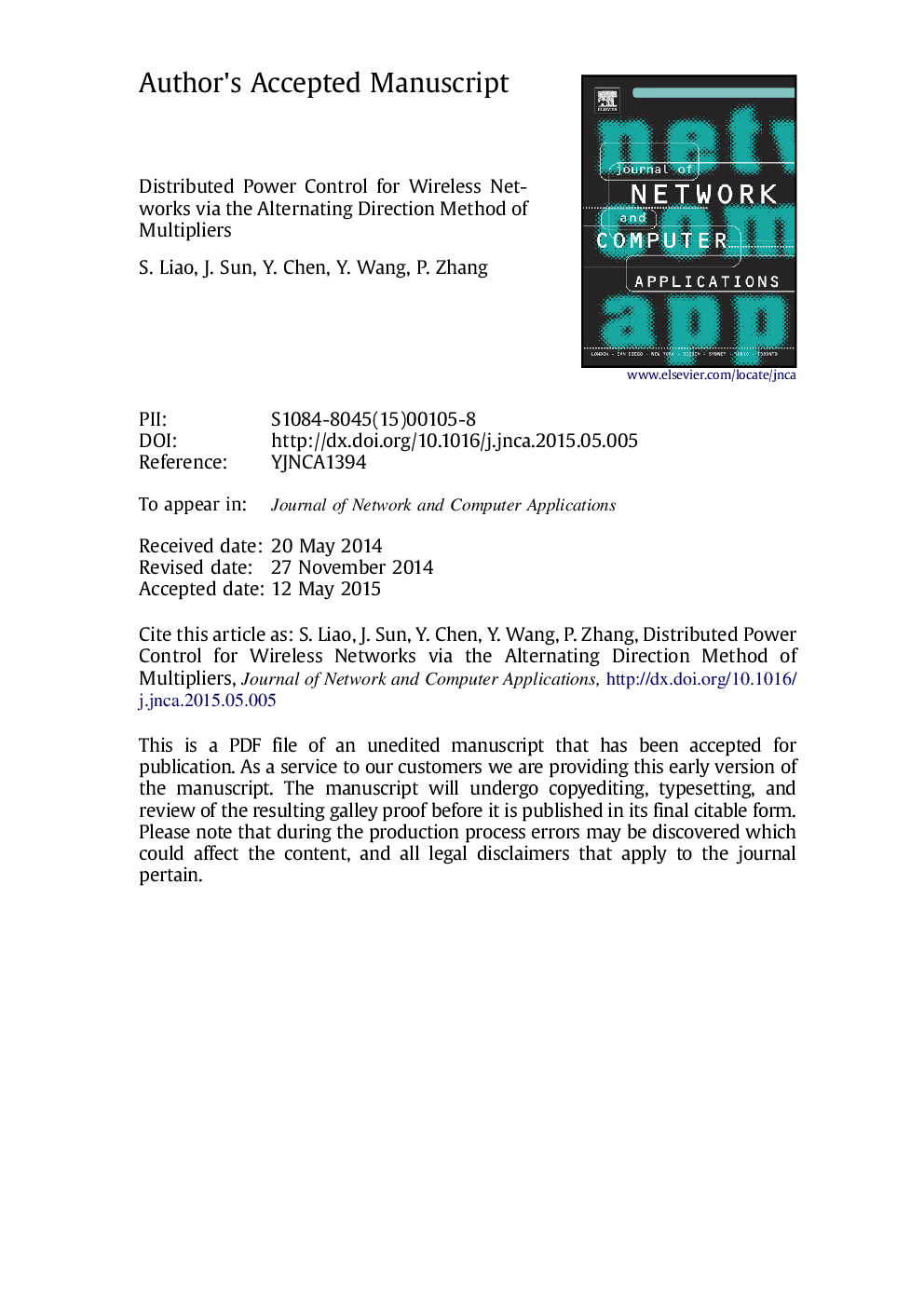| Article ID | Journal | Published Year | Pages | File Type |
|---|---|---|---|---|
| 6885065 | Journal of Network and Computer Applications | 2015 | 24 Pages |
Abstract
Utility-based power control in wireless networks has been widely recognized as an effective mechanism to managing co-channel interferences. It is based on the maximization of system utility subject to power constraints, which is referred to as power control optimization problem. Global coupling between the mutual interference of wireless channels increases the difficulty of searching global optimum significantly. In this paper, we decouple the optimization problems with concave and non-concave utility functions; and transform them into a global consensus problem by introducing locally slack variables. We then propose two distributed iterative optimization algorithms for the global consensus problems with concave and non-concave objective functions, based on an alternating direction method of multipliers. Furthermore, we prove that both algorithms converge to the global optimum of the total network utility. Simulation results show the effectiveness of the algorithms. Comparison experiments show that the developed algorithms compare favourably against some other well-known algorithms.
Keywords
Related Topics
Physical Sciences and Engineering
Computer Science
Computer Networks and Communications
Authors
S. Liao, J. Sun, Y. Chen, Y. Wang, P. Zhang,
